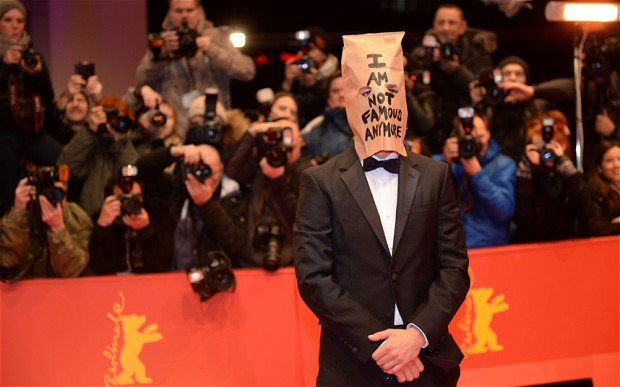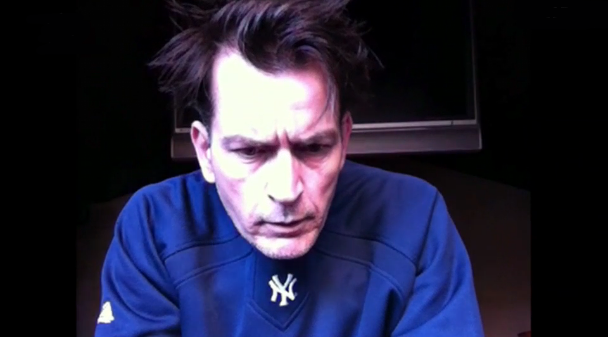Get Your Script Reviewed On Scriptshadow!: To submit your script for an Amateur Review, send in a PDF of your script, along with the title, genre, logline, and finally, something interesting about yourself and/or your script that you’d like us to post along with the script if reviewed. Use my submission address please: Carsonreeves3@gmail.com. Remember that your script will be posted. If you’re nervous about the effects of a bad review, feel free to use an alias name and/or title. It’s a good idea to resubmit every couple of weeks so your submission stays near the top.
Genre: Dark Comedy
Premise (from writer): A colorful but washed-up bad boy recounts his epic rise and fall in Hollywood on an online video blog.
Why You Should Read (from writer): Imagine walking into Dylan’s Candy Bar in NYC and receiving a grab-bag of delicious wonderment– a daze of brilliantly colored candies in odd shapes, colors, and textures. In fact, when you first open the bag a pop of glitter explodes in your face. You suddenly get slapped on the back by Christopher Walken, then an adjacent clown blows a bull-horn in your left ear. You’re not quite sure what just happened, you don’t 100% understand… but you think you like it. That’s how reading this script feels.
Writer: Mayhem Jones
Details: 86 pages
Today’s script seems apropos in the wake of Shia LaBeouf’s very public celebrity meltdown. He’s sorry. For what, he’s not saying. What’s eerie is that today’s protagonist, in a script written many months ago (I’m assuming), has a shockingly similar meltdown. Granted, there’s a little Charlie Sheen thrown in for good measure, but it’s weird. Then again, “Dexter Strange” is written with the kind of raw energy that one might assume could be birthed in a Red Bull infused 24 hour writing marathon. So maybe, just maybe, it was conceived in the wake of Shia’s “I Am Sorry” campaign. However, whereas Shia seems to speak by not speaking, Dexter Strange seems to speak by… speaking a lot. A really lot. There’s a lot a lot of speaking in this script. To give you a little preview, here’s a line from Dexter…
“If we work made-up jobs to earn made-up money, then the fact I’m an actor means my made-up job is a made-up job where I make-up being other made-up people in a made-up job I make-up to make made-up money.”
If you’re not prepared to read a lot of sentences like that, then Dexter Strange slash Shia LaBeouf slash Charlie Sheen probably isn’t for you. Was it for me? Let’s find out!
44 year old Dexter Strange is a former movie star. He’s still sexy. He’s still good-looking. But things aren’t going well for him lately. At the moment, he’s sitting in front of his computer, live video streaming his breakdown, which includes lots of drugs, lots of booze, and a couple of hookers shimmying about in the background.
The nice (or un-nice) thing about Dexter is he’s very forthcoming about his meltdown. Like he wants you to know all of it. He will talk and talk and talk and talk until there’s nothing left to say, then he’ll talk some more. Most of his talking has to do with his philosophies on life (there’s a lot of stuff like the “made-up jobs” observation above). Interspersed between these talkings, we get flashbacks of Dexter’s rise to fame.
If you can call it that. Dexter’s rise is surprisingly general. We only get these snippets of it here and there, like when he meets his agent, when he dumps his girlfriend, and when he fake-marries a trashy Lindsey Lohan clone. It’s what’s so strange about this script. For all the exceedingly specific dialogue and voice over, we’re not seeing nearly enough of Dexter’s life.
In the end (big spoiler alert), Dexter doesn’t make it. He kills himself. And I guess that means this lands somewhere between a cautionary tale, a tragedy, and a satire. Does it succeed at any of these? Honestly, I’m not sure. But what I am sure of is that it’s a hell of a ride while we’re trying to figure that out.
The first thing that comes to mind when you read “Dexter Strange” is not the story, or even the character. It’s the writing itself. It’s very fast, energetic, confident, delirious, crazed, as well as a number of other adjectives I can’t think of at the moment.
For the most part, I liked that. Because I’m used to reading a lot of boring writing when I pick up a script. Whether you like this story or not, the writing stays with you. And when the writing stays with the reader, that means the writer has a shot in this business. (#VOICEISIMPORTANT)
The problem with this type of writing, though, is that it’s very “look at me.” It’s more about the writing than the story, and while that works for awhile, it almost always becomes tiring. And in cases like this, where the writing is SO big and SO “in your face,” it can become irritating. I mean here’s one of Dexter’s many monologues, this one on page 13: “What is your thing? Ordaining pastors? Protected sex? Hey. Why don’t you blow my fuckin’ mind for once? You’re– we’re on Rumspriga now, OK! You can wander a little from the farm. Step astride the buggy. Halt churning that goddamn butter. Or do you miss–(flaps arms) BA-CAW! Runnin’ around with the chickens? BA-CAW! Marty. Remember Marty? No-name nothin’ feed corn farmer? Seriously. Inferior corn. Can’t even grow shit fit for human consumption– and he’d kill to be in your loafers right now. But who’s my best friend? Who drove me to Los Angeles, not even a blink, for an agent meeting? Do me a solid by doing me proud. Pretend Marty’s watching us right now– you’re on a screen! Hey, Marty! We’re on TV. Let’s do it. The rabbit hole beckons. Just a taste. A lick. A toe-dip. Here, a puff—“
It’s hard for a reader to take that kind of crazy for 90 minutes.
Assuming that works for the reader though, you’re still fighting an uphill battle with this structure. The script is essentially a ranting character intermixed with flashbacks of his rise to fame. There’s no real story here. We’re not pushing towards anything. We’re recalling everything. What I mean by that is, there’s nothing more to gain. There’s no goal. There’s nothing our character wants. Everything that’s relevant has already happened. And that means the story is only going backwards. A “backwards” story is hard to tell, because most audiences want to go forward. Ripley doesn’t recall the tough life that she had growing up. She goes to that planet to destroy the aliens. In “Dexter Strange,” we’re just remembering a very sad man’s life where very sad things happened.
Now if you want to play this as a tragedy, that’s a different deal. But the thing with tragedies is we still need that building-up period. We need the happy stuff. The good times. A world that our character can fall from grace from. In Goodfellas, Henry Hill achieves a hell of a lot and lives a wonderful life before he starts to fall. As does our friend Tony Montana in Scarface. In “Dexter Srange,” there’s never really any good times. Dexter is screwed pretty much from the beginning (he’s forced to give a producer a hand job on his very first meeting for a role).
When you throw in a main character who’s hard to like (this guy’s an asshole to pretty much everyone), well, you’ve made things really hard for yourself.
You guys know me by now. I don’t respond to stuff that’s all negative, all sad. And to drive that point home, I stopped reading this a couple of times to go read THIS post. That tells you how much this was getting me down.
But I don’t think Mayhem should be discouraged here. She’s created a character that an actor would love to play. And she clearly has a ton of talent. I often gauge a writer’s ability with the question, “Could the average writer do this?” There is nobody else in the world who could’ve written this script but this writer. So that’s saying something. Now if she could just harness her powers and bring that talent to something a little more accessible, I’d be in.
Script Link: The Tragic Life Of Dexter Strange
[ ] what the hell did I just read?
[x] wasn’t for me
[ ] worth the read
[ ] impressive
[ ] genius
What I learned: Style over substance only works for about 15-20 pages before the reader starts to check out. Doesn’t matter how good of a wordsmith you are, how good you are with prose. 15 pages with all glitz and no story? Readers start skimming.



